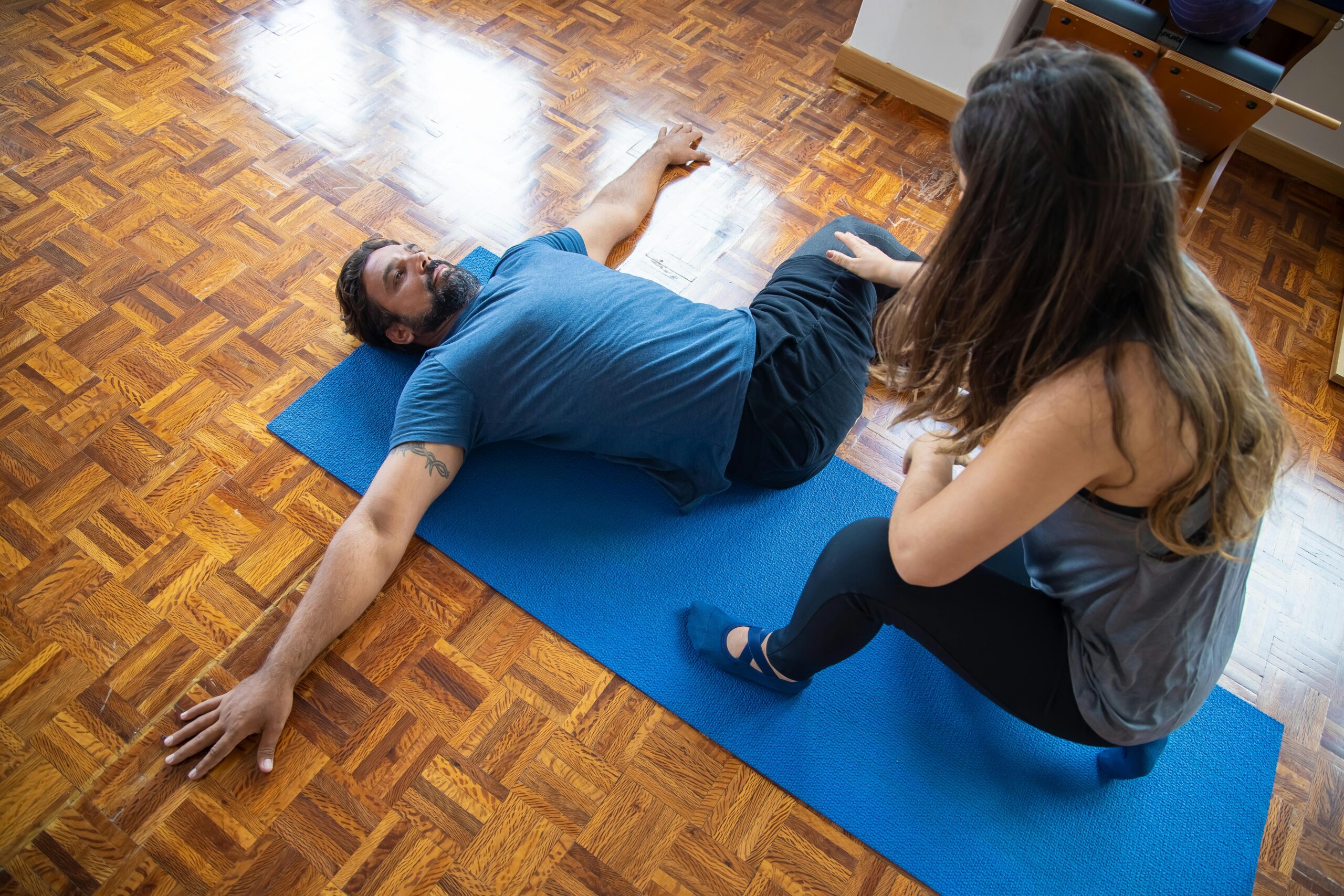Top 7 Effective Gym Plans to Optimize Your Workouts in 2025
In the fast-paced realm of fitness, having an effective gym plan is essential for reaching your goals, whether it’s building muscle, losing weight, or increasing overall fitness. As we step into 2025, the importance of a structured approach to workouts has never been greater. Optimal gym plans not only keep you accountable but also allow you to tailor your workouts according to your personal fitness level and objectives. In this article, we delve into the top seven gym plans designed to optimize your workouts, ensuring that every exercise session drives you closer to your fitness goals.
Benefits of a well-structured gym plan extend beyond just workouts. They provide motivation, structure, and variety, keeping routines fresh and engaging. This article will guide you through each plan’s unique features, training methods, and alignment with common fitness goals, giving you the tools you need for a successful fitness journey.
Key takeaways include insights into effective training methods, the significance of proper nutrition, and expert tips to enhance your workout experience. Let’s dive into these exceptional gym plans!

Essential Guide to Crafting Your Personal Training Plan
Building on the fundamentals of effective gym plans, creating a personal training plan is pivotal for individual success. A personalized training plan aligns closely with your fitness goals, be it muscle building, endurance enhancement, or overall health improvement.
Understanding Your Fitness Goals
Before you create your training plan, it’s vital to understand your personal fitness objectives. Are you aiming for weight loss, muscle gain, or increased stamina? Defining clear goals will help shape your strategy and ensure focused efforts during workouts. Additionally, it’s essential to acknowledge any physical limitations that may influence your training. Consult with fitness professionals to assess your current fitness level and create realistic targets.
Designing Your Weekly Workout Routine
A well-structured weekly workout routine helps maintain consistency and progress. Incorporate various types of training, such as strength training, cardio workouts, and flexibility exercises. A typical week could consist of 3-4 strength training sessions (using equipment like Kraftstationen and weights), complemented by 2-3 days of cardio to optimize endurance. By varying your workouts, you can prevent plateaus and keep motivation high.
Tracking Your Progress with a Training Diary
Keeping a training diary allows you to track your workouts, monitor progress, and make necessary adjustments. Log details like weights lifted, reps completed, and any notes on your energy levels. This practice not only keeps you accountable but also provides insight into what works best for your body, tailoring your workouts to maximize effectiveness.
Advanced Techniques for Effective Muscle Building
With your personal training plan in place, focusing on advanced techniques for muscle building is essential. Muscle building is often a key goal for gym-goers, and understanding various training methods will dramatically impact your results.
Utilizing HIIT for Maximum Gains
High-Intensity Interval Training (HIIT) is an effective method for muscle building and fat loss. Integrating short bursts of intense exercise followed by rest or low-intensity periods can boost metabolism and enhance muscular endurance. Consider incorporating HIIT sessions into your weekly routine, focusing on compound exercises like squats, deadlifts, and bench presses.
Isolation Exercises for Targeted Growth
To promote balanced muscle development, include isolation exercises targeting specific muscle groups. Exercises like bicep curls, tricep extensions, and leg extensions can enhance muscle definition and correct any imbalances. Pair these with compound movements for a well-rounded approach to strength training.
Incorporating Progressive Overload
Progressive overload is a fundamental principle in strength training, requiring you to continually challenge your muscles by increasing resistance, reps, or intensity. By gradually increasing the weights or altering your workout intensity, your muscles adapt and grow. Regularly assess your performance and aim for small, incremental improvements to continuously push your limits.

Building Endurance: Effective Cardio Routines
Transitioning from strength training, building endurance through effective cardio routines is vital for overall fitness. Cardio exercises improve heart health, increase metabolism, and overall endurance.
Choosing the Right Cardio Exercises
There are numerous cardio exercises to choose from, including running, cycling, rowing, or group fitness classes. Select activities you enjoy to maintain motivation and consistency. Mixing various methods—like steady-state cardio with more intense intervals—can provide comprehensive cardiovascular benefits.
Implementing an Effective Cardio Schedule
To experience optimal results, implement a structured cardio schedule. Aim for at least 150 minutes of moderate-intensity or 75 minutes of high-intensity cardio each week. Pair these sessions with interval training for added benefits, and don’t forget to listen to your body. Allow recovery days to prevent fatigue and overtraining.
Utilizing Fitness Trackers for Better Results
Incorporating fitness trackers into your routine can monitor your heart rate, calories burned, and overall performance metrics. Using apps that sync your workouts can enhance accountability and provide insights into your fitness journey, enabling adjustments to maximize your results.
Nutrition Strategies for Optimal Performance
Your gym plan isn’t complete without a well-structured nutrition strategy. Fueling your body correctly plays a critical role in performance and recovery.
Creating a Balanced Meal Plan
Building a balanced meal plan composed of macronutrients—carbohydrates, proteins, and fats—ensures your body receives adequate nutrition for energy and recovery. Focus on whole foods like fruits, vegetables, lean proteins, and whole grains. Consider portion control and meal timing in relation to your workouts for optimal energy levels.
Importance of Hydration
Staying hydrated is crucial for optimal performance and recovery. Aim to drink water consistently throughout the day, and consider electrolyte replacement during longer workouts. Monitor your hydration levels, as even mild dehydration can hinder performance and recovery.
Supplementation for Enhanced Results
While a well-rounded diet should provide most nutrients, certain supplements can enhance your performance. Popular options include protein powders for muscle recovery, omega-3 fatty acids for joint health, and BCAAs for muscle repair. Consult a healthcare professional or nutritionist before starting any supplements.
Incorporating Recovery and Regeneration Techniques
Finally, incorporating recovery and regeneration techniques is vital for longevity in your fitness journey. Without proper rest, your body can succumb to fatigue and overtraining.
The Role of Rest Days
Rest days are as important as workout days, allowing your muscles time to recover and grow. Schedule at least one to two rest days per week and consider engaging in low-impact activities like walking or yoga to maintain mobility and circulation.
Stretching and Mobility Work
Incorporating daily stretching and mobility work in your routine can improve flexibility, reduce muscle tension, and minimize the risk of injuries. Focus on dynamic stretches before workouts and static stretches afterward to maintain optimal performance.
Monitoring for Signs of Overtraining
Be vigilant about the signs of overtraining, including chronic fatigue, muscle soreness, and decreased performance. If you notice any of these symptoms, it may be time to adjust your training intensity or incorporate more recovery days into your workout schedule.
Q&A: Common Fitness Queries
What should I include in a balanced workout routine?
A balanced workout routine should include a mix of strength training, cardio, and flexibility exercises. Incorporate compound movements for strength, various cardio methods for endurance, and regular stretching for flexibility.
How do I stay motivated to stick to my gym plan?
To stay motivated, set clear, achievable fitness goals and track your progress. Consider working out with a friend, joining group classes, or following fitness influencers for additional support and inspiration.
Are supplements necessary for muscle building?
Supplements can enhance results but aren’t strictly necessary if you maintain a balanced diet. Protein supplements can aid recovery; however, it’s always best to prioritize whole food sources first.
How do I know if I’m overtraining?
Signs of overtraining include persistent fatigue, irritability, disrupted sleep, and decreased performance. If you experience these symptoms, consider reducing workout intensity or increasing rest periods.
Through understanding effective gym plans, workout methods, and nutritional strategies, you can cultivate an approach to fitness that aligns with your personal goals and keeps you motivated. Embrace these proven techniques to create a thriving fitness journey in 2025!
